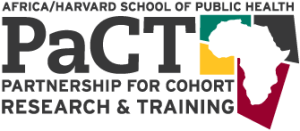 A chronic disease tsunami is coming to Africa. Aid to Africa has focused on infections such as malaria, TB, and HIV. But such efforts will soon be overshadowed by the swirling sea of emerging modern diseases similar to those seen in high-income countries such as heart disease, mental illness, cancer, diabetes, and obesity. By 2030, according to the WHO, three of the top four causes of death in low-income countries will be heart disease, stroke, and chronic lung disease. Cohort studies enroll tens of thousands of people who are asked questions about what they eat, how much they exercise and smoke, and their family and reproductive histories. These are correlated with information from biological samples. However, Africa, home to nearly one billion people, has no large cohort studies similar to those in the US and Europe that look at chronic diseases.
A chronic disease tsunami is coming to Africa. Aid to Africa has focused on infections such as malaria, TB, and HIV. But such efforts will soon be overshadowed by the swirling sea of emerging modern diseases similar to those seen in high-income countries such as heart disease, mental illness, cancer, diabetes, and obesity. By 2030, according to the WHO, three of the top four causes of death in low-income countries will be heart disease, stroke, and chronic lung disease. Cohort studies enroll tens of thousands of people who are asked questions about what they eat, how much they exercise and smoke, and their family and reproductive histories. These are correlated with information from biological samples. However, Africa, home to nearly one billion people, has no large cohort studies similar to those in the US and Europe that look at chronic diseases.
In conjunction with African colleagues, the team at Harvard School of Public Health has begun an ambitious project to start cohort studies that include 500,000 participants across Nigeria, Uganda, Tanzania, and South Africa. They will make innovative use of technology to keep costs down. For example, with cell phones––widely used across all of Africa––they can retrieve data and conduct follow-up surveys with participants. They plan to develop comprehensive biobank to enable cutting edge molecular studies. The large number of participants will allow the study of gene and environment interactions. And, as has been effectively demonstrated with studies here in the United States, PaCT will provide a fertile training ground in innovative research and create viable career paths for African scientists. Furthermore, PaCT will allow for collaboration between African countries, as well as partnerships with more developed countries.
Please contact us at pact@hsph.harvard.edu if you have any questions.
Coming soon…
This summer, the Africa/HSPH PaCT team along with collaborators from the world-renowned Media Lab of the Massachusetts Institute of Technology, will be launching the “What is your Social ImPaCT?” campaign. In response to billionaires signing The Giving Pledge to give their money toward social good, we want to empower you, too; you don’t have to be a billionaire to make a difference. By joining the Social ImPaCT campaign, you can watch your small donation grow by the hour, and measure your true social impact as you recruit others to give a ‘gift that keeps on giving.’ Stay tuned for more information and the launch of theSocial ImPaCT campaign in the coming weeks.



